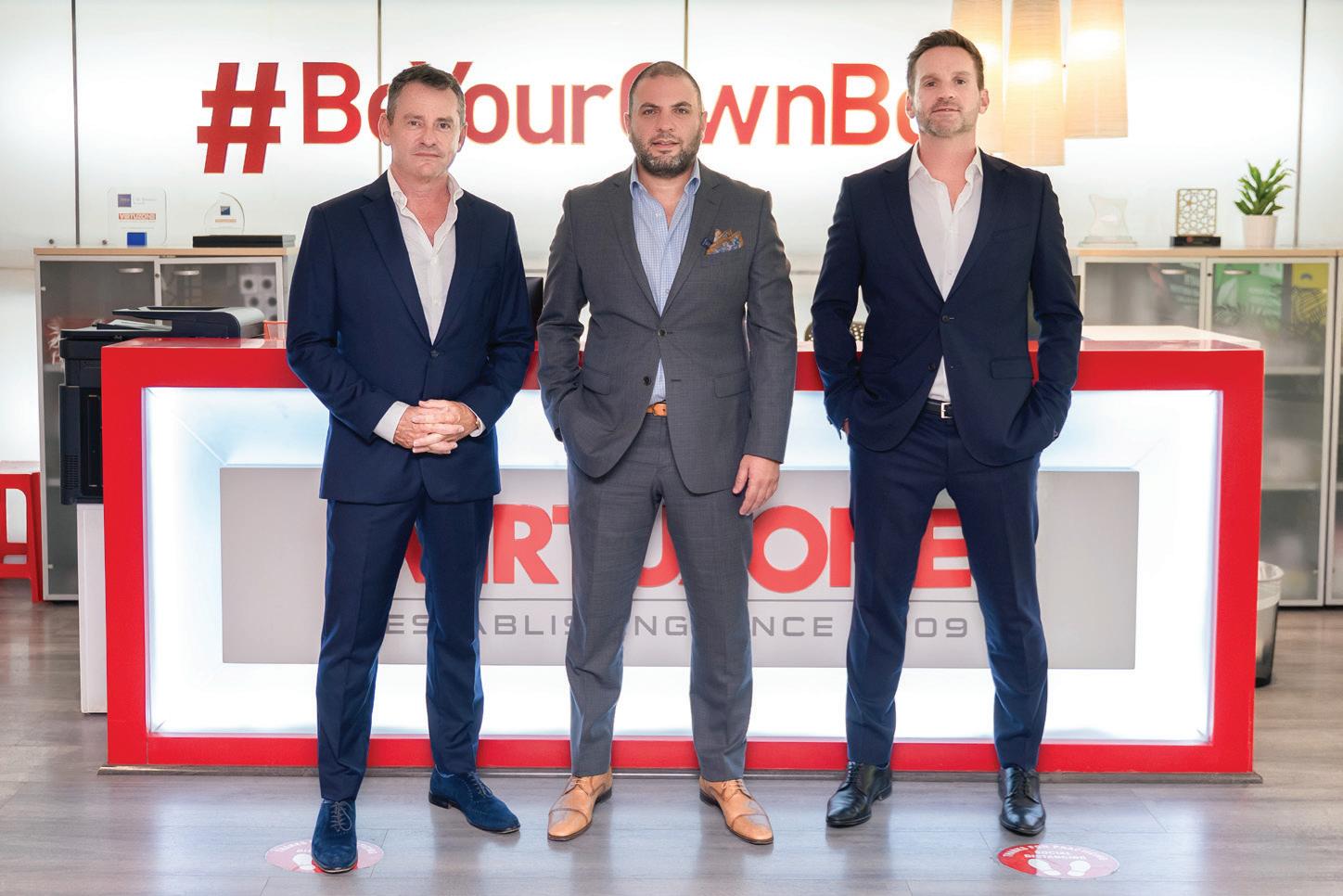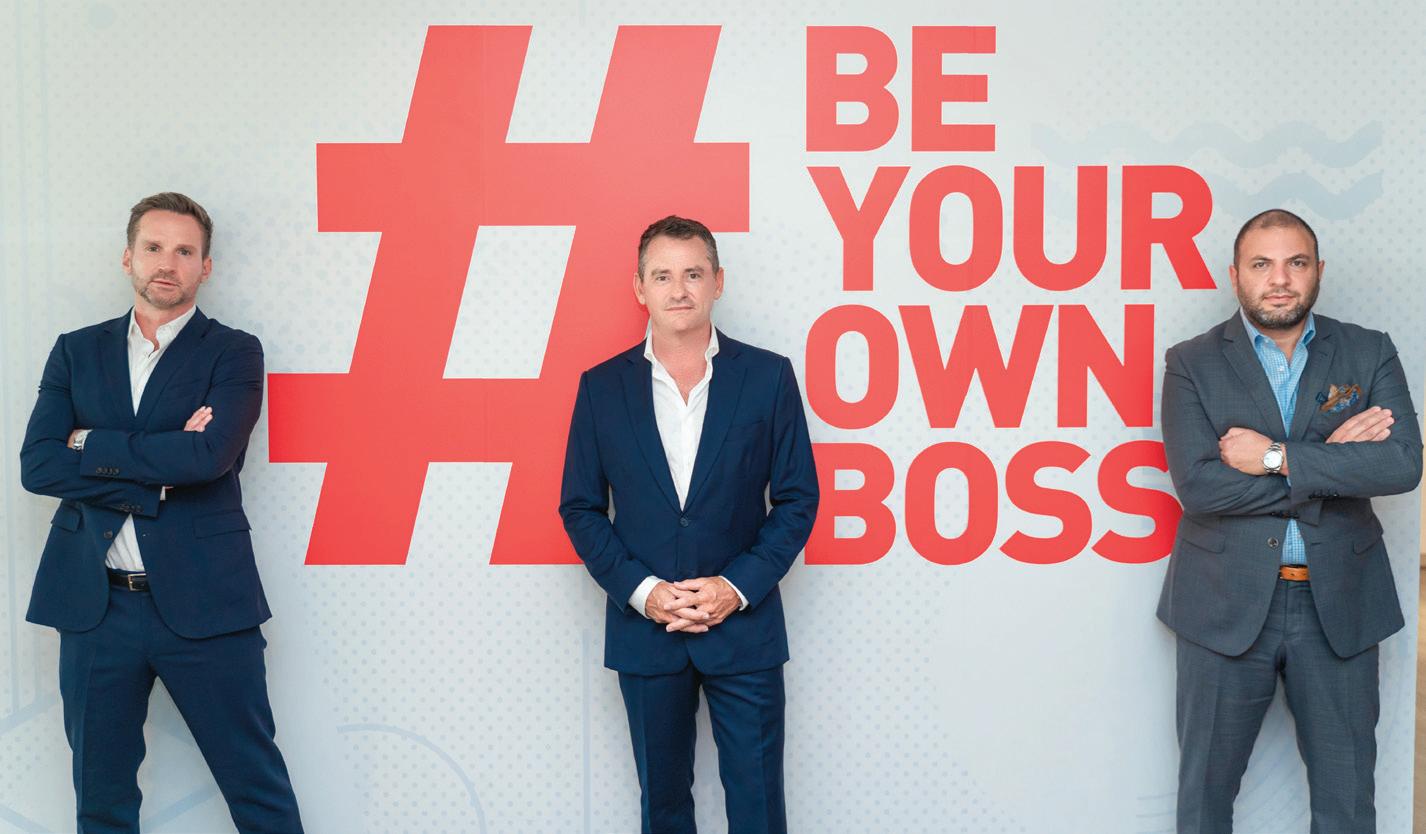
5 minute read
Nurturing business and startups ecosystem
from May June 2021
by MEA Business
Nurturing the Business and Startups Ecosystem
Advertisement
While the UAE is by far the most diversified economy in the Mideast region, oil still contributes significantly to the country’s gross domestic product (GDP). Any volatility in the global markets and the oil industry could dampen confidence among investors and affect the country’s economic performance. Despite the impact of the twin shocks of COVID-19 and low oil prices on regional economies, the UAE is weathering the negative trend in global markets and analysts remain optimistic about the country’s growth this year. The UAE has a slightly better public debt outlook compared to its regional neighbors and the implementation of structural reforms to nurture the growth of the nonoil private sector and the development of transparent rules-based fiscal frameworks is expected to support long-term sustainability. “In terms of ease of doing business, the UAE ranks higher than any other country in the Mideast region. The country is home to two international finance centers, Dubai International Financial Centre and Abu Dhabi Financial Markets, a point of attraction for institutional investors,”
left to right. Neil Petch, Chairman & Co-founder, Virtuzone. George Hojeige, CEO, Virtuzone. Geoff Rapp, the Co-founder of Virtuzone.
said Neil Petch, Chairman & Co-founder, Virtuzone.
The Emirates’ efforts to diversify the economy away from heavy dependence on oil revenues are opening more investment opportunities in the non-oil private sector and are critical to achieving sustainable growth. Over the last 24 months, the government has updated and enlarged the scope of available residence and tourist visas, to boosts UAE’s global competitiveness. Initiatives like this one are expected to attract more investors and entrepreneurs. The UAE is also introducing new initiatives in several sectors including finance and technology, including structural reforms to bolster growth and strengthen the country’s status as an international investment destination.
As part of the government’s initiatives to open its economy, the country has one of the highest vaccination rates in the region together with Israel and Bahrain. “The UAE boasts of one of the world’s most organized and agile structures when it comes to combatting COVID-19. The country has one of the highest inoculation rates in the world,” said George Hojeige, the CEO of Virtuzone.
IHS Markit said that business conditions in the UAE’s non-oil private sector continued to improve in April, as the country’s business activity increased reaching a 20-month high as its economy recovers from the pandemic.
GEORGE HOJEIGE

left to right. Geoff Rapp, the Co-founder of Virtuzone. Neil Petch, Chairman & Co-founder, Virtuzone. George Hojeige, CEO, Virtuzone.
Opening up
Earlier this year, the UAE announced plans to offer Emirati citizenship and passports to a set group of foreigners, including foreign investors, professionals and special talents, a first in the GCC region as the country looks to give expats a bigger stake in the economy to drive growth. “The UAE immigration and labor authorities are continuously running updates to the relevant legislation and laws governing the immigration and labor laws in the country,” said Deloitte. The UAE authorities continue to be proactive when it comes to opening the country for foreigners which is evident in the updates which were made to its visas which include allowing university students to sponsor and bring their families, a visa-free travel agreement with Israel and remote working visas. “The country also has a large expat community that makes it easier and more welcoming for foreign investors coming from any part of the world, making it easier to connect with other entrepreneurs, build a network and settle in,” Hojeige said. The UAE offers foreign investors who are interested in establishing their businesses in the country two options – establishing a presence on the mainland in any of the seven emirates or establishing in one of the UAE’s economic free zones. Last November, the government scrapped a law that required an Emirati shareholder when a foreigner plans to establish a business in the country. “Instead of reliance on oil and tourism revenue, the UAE can be a service provider, a Geneva of the 21st century.” added Petch.
KPMG stated that given the current economic impact of the pandemic crisis, the move to allow foreign entrepreneurs and investors to fully establish and own companies is a welcome move for new and existing investors and reinforces the country’s appeal as a regional investment hub.
Government support
The UAE authorities, both at the emirate and federal level, are introducing several initiatives to support investors/ entrepreneurs as part of the country’s efforts to open economic activities amid the realization of the role foreign direct investment can play in easing fiscal burdens and foster sustainable growth. “By establishing the UAE as the global hub for innovation, the country can attract innovators, investors, professionals, and special talents,” said Geoff Rapp, the Co-founder of Virtuzone.
Last month, the UAE central banks extended the crucial parts of its stimulus aid scheme, the Targeted Economic Support Scheme until June 2022after it had extended its $13.6 billion “Zero Cost Facility” for another six months from January to June 2021 in November last year to provide temporary relief to SMEs, companies and individuals who were affected by the pandemic. “The purpose of the targeted scheme is to facilitate the provision of temporary relief from the payments of principal and interest on outstanding loans for all affected private-sector companies and retail customers in the UAE” said Moody’s. At an emirate level, Dubai extended the freeze on public service fees until 2023 while in Abu Dhabi several government entities including Abu Dhabi Ports introduced a rent freeze this year for all businesses to provide further relief to investors.
The federal government is also introducing programs to shore up investment in the country, such as the ‘Make it in the Emirates’ and ‘Operation300bn’, initiatives that seek to support SME’s for the next 10-years to boost their contribution to the country’s economic output.










